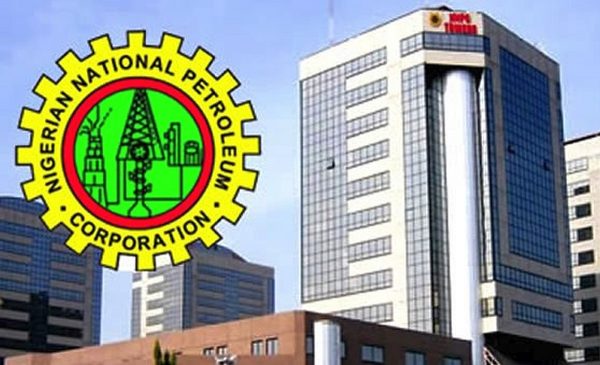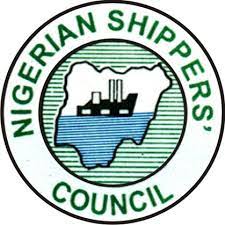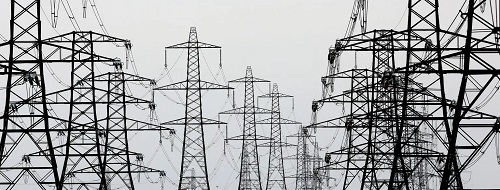BUSINESS
2021: NNPC in Retrospect

In retrospect, the Nigerian National Petroleum Company (NNPC) Limited recorded some remarkable achievements in 2021 including the signing into law of the Petroleum Industry Act (PIA) by President Muhammadu Buhari.
There are other major achievements in the industry which had placed the country on the part of success since the first discovery of crude oil in 1956 at Oloibiri, in present day Bayelsa.
The oil and gas industry had since grown to become the bane bedrock of Nigerian economic and a major source of national development.
The industry contributes about 30 per cent of the nation’s gross domestic product, GDP, over 70 per cent of government revenue and 90 per cent of foreign exchange earnings.
With this steady beat over the past six decades and the attendant contribution to the national coffers, the Nigerian oil and gas industry has evolved; with Nigeria becoming the largest oil and gas producer in Africa.
According to the defunct Department of Petroleum Resources (DPR), Nigeria has a total of 159 oil fields and 1,481 operating wells.
Nigeria currently has the largest gas reserve in the African continent and the world’s fifth-largest exporter of liquefied natural (LNG).
According to the defunct DPR, Nigeria has a proven gas deposit of 206.53 trillion cubic feet; the gas reserve is projected to increase to 230 trillion cubic feet by 2030.
The new figure represented a major increase of 3.37TCF in proven natural gas reserves; a 1.66 per cent rise from the 203.16TCF recorded on Jan. 1, 2020.
Sarki Auwalu, who was Director of DPR, in a breakdown, said of the 206.53TCF, Associated Gas was 100.73TCF and Non Associated Gas 105.80TCF.
The impact of the unexpected emergence of the COVID-19 pandemic on the global oil and gas industry in 2020 brought huge losses to the industry; consequently, in the last two years, the global oil and gas industry suffered a two-pronged setbacks caused by the imbalance in oil supply/demand and price deflation.
This global issue of course did not happen without a reverberating effect on the Nigerian oil and gas industry and that has not put the nation’s economy in a good stead.
In January, Chief Timipre Sylva, Minister of State for Petroleum Resources, declared 2021 to 2030 as the Decade of Gas Development.
Sylva said the initiative was to transform Nigeria to a gas-powered economy by 2030.
“Our efforts will continue to focus on gas to transmute Nigeria from the conventional dependence on white products to a cleaner, more available, accessible, acceptable, and affordable energy use in gas.
“This will not only cushion the effects of current deregulation but also create enormous job opportunities for Nigerians”.
The NUPRC is in charge of upstream petroleum regulatory activities while the NMDPRA is responsible for oil and gas activities in the midstream and downstream sectors.
NNPC Ltd. was incorporated as a Companies and Allied Matters Act (CAMA) company on September 22 in line with provisions of the PIA.
The NNPC Limited and its subsidiaries would operate under CAMA 2020 without recourse to Government funds, declare dividends to its shareholders and retain 20 per cent of profits to grow its business.
The new company is to be the supplier of last resort for security reasons and all associated costs shall be for the account of the federation.
In October, the NNPC was given approval for the reconstruction of 21 federal roads across the six geopolitical zones of the country.
The approval was given at the FEC meeting presided over by Vice President Yemi Osinbajo at the Presidential Villa, Abuja.
Briefing State House correspondents at the end of the council meeting, the Minister of Works and Housing, Mr Babatunde Fashola said that the construction works on the 1804.6 Kilometers roads is a strategic intervention under the Federal Government Road Infrastructure and Refreshment Tax Credit Scheme.
He explained that the Executive Order 7 allows the private sector to deploy in advance the taxes they would pay for infrastructure development.
OTHER ACTIVITIES
The year 2021 witnessed intensified calls for global transition to cleaner sources of energy and reduction in investment in fossil fuels exploration activities which saw the major International oil companies divesting from crude oil to gas and other renewable resources of energy.
Many of the companies have changed their names from oil companies to energy companies to reflect their current positions as they move to become carbon neutral by 2045.
It is to this end that the world leaders gathered at the United Nations Climate Change Conference (COP 26) in Glasgow, Scotland in November with discussions on energy transition dominating the conference.
President Buhari who addressed the conference demanded for energy justice for Nigeria and other developing countries with hydrocarbon resources.
He said there was need to exploit the available resources as a pathway to attain the net-zero carbon objectives by 2050.
The president noted that even though Africa accounted for only about three per cent of the global carbon emission, the continent still had the responsibility to join the world in combating climate change.
According to him, Nigeria has identified its abundant gas resources as its fuel for energy transition which informed the declaration of the 2021 to 2030 as the “Decade of Gas” by the government.
He also said that the enactment of the PIA would attract investment for the enhancement of gas utilisation. This is in alignment with the various incentives granted to investors.
In November, the Minister of Finance, Budget and National Planning, Mrs Zainab Ahmed, announced that government would remove subsidy on Premium Motor Spirit from 2022.
The minister said that government plans to replace it with a monthly N5,000 transport grant to about 40 million poor Nigerians.
Analysts believe that removal of subsidy would make the price of petroleum products in Nigeria, be at par with its African neighbours which would discourage smuggling.
He said that the 2022 deadline is realistic as the impact of the subsidy removal might be mitigated with the coming on stream of the 650,000bpd Dangote Refinery, Bua Group Refinery, Waltersmith Refinery and other modular refineries.
Nigerians also witnessed an unprecedented hike in the price of Liquefied Petroleum Gas (LPG), also known as cooking gas, in 2021.
The increment forced some low-income families to go back to the use of firewood and stove, which was a setback to the government’s aspirations to deepen gas utilisation in the country.
As at January, the price of cooking gas ranged from N4,500 to N5,000 depending on the location, but in a few days to the end of the year in December, the marketer sold the LPG for between N8,500 and 10,000.
Marketers attribute the hike to global supply challenges, high international prices, limited availability of foreign exchange and high exchange rates.
The GMD/CEO of NNPC, Kyari gave reasons for the increase and assured the nation of NNPC’s commitment to bring down the prices.
On Nov. 5, Well head 1 in Nembe, Bayelsa operated by AITEO Exploration and Production spilled its contents, causing serious damage to the environment.
The company, working with local and international experts, was able to stop the leakage on Dec. 8, while clean up and investigation into the incident was carried out.
Also, NNPC presented a symbolic tax credit cheque to the Minister of Works and Housing Mr Babatunde Fashola, in his office in Abuja.
At the event, the minister dispelled insinuations that the NNPC was taking over road construction from the ministry. (NAN)
BUSINESS
Subsidy Removal: Tinubu Kept his Campaign Promise – Akutah

Executive Secretary/CEO, Nigerian Shippers Council (NSC), Pius Akuta said President Bola Tinubu kept to his campaign promise by removing fuel subsidy.
Tinubu announced the removal of subsidy on petrol immediately he was sworn in on May 29, 2023.
“The very first day, he took a very bold initiative to remove fuel subsidies, which many of you have written and condemned in the past.
“We don’t know if other people would have had the courage to go ahead and remove it.
“All the presidential candidates at that time promised to remove the fuel subsidy but, for this President has displayed that capacity to do what he said,” he said.
According to him, Tinubu, in the last two years, took some bold steps, taking some policy directions that are shaping the economy.
He said that the country`s foreign reserves were in a bad shape when the current administration took over the government, adding that now there is significant growth.
Akutah said that the president acknowledged that there was hardship, but he stuck to that policy which has brought a lot of gains in the way of government business today.
“Even at the sub-national levels. You know that state governments have more money now; local governments have more money due to that policy direction.
“We need to commend President Tinubu for that initiative, which has put more money at the sub-national level for capital projects to spring up.
“We are seeing many states executing many projects, capital projects, and huge infrastructural developments going on in so many states,” he said.
He said that for Tinubu to have acknowledged developments in opposition states means he is eager to see the country developed in terms of infrastructure.
“It doesn’t matter whether you are in his party, but the moment you are doing the right thing, he will stand with you, and he acknowledged that publicly.
“The GDP was at one very low and the growth was very slow and sluggish before President Tinubu assumed office,” he said.
BUSINESS
Power Outage Killing Our Businesses, Enugu Residents Cry Out

Residents of Ologo, Coal Camp and Uwani areas of Enugu metropolis have decried persistent power outage in the area spanning over one week, and appealed to relevant authorities to come to their aid.
A cross section of the residents, who spoke in Enugu on Tuesday called for Gov.
Peter Mbah’s intervention to restore power supply to the area.They said that lack of power supply was affecting their businesses, households and means of livelihood.
Recall that the MainPower Electricity Distribution Company Limited (MPECL) on Aug. 4, issued a statement blaming the Enugu Electricity Distribution Company (EEDC), for the development.
According to the company, the reduction followed the decision by the Enugu Electricity Regulatory Commission (EERC) to slash electricity tariff for Band A from N209 per kWh to N160 per kWh.
Since the directive came into effect on Aug. 1, electricity consumers on Band B to E have been thrown into darkness in parts of the city, crippling many economic activities.
A welder at the Mechanic Shop in Coal Camp, Obum Chijioke, said that he had spent a lot of money on fuel to do his job adding that he went home empty handed.
According to him, it has not been easy for us in the past one week as we spend the little we make on fuel.
Chijioke appealed to the relevant authorities to look into the problem urgently and restore the energy.
A cleric in a church on Zik Avenue, who spoke anonymously, said that the church had been using diesel for its activities including services and it was taking a toll on them.
“We spend between N25,000 and N30,000 on diesel daily for our activities and it is not easy at all,”.
A retail shop operator, Chika Alejim, decried the situation, saying that it had affected her business.
She said she had not been able to chill her drinks and sachet water, which were the mainstay of her business.
According to her, the business was no longer booming unlike before, thereby, affecting her profits and incurring more expenses.
“I buy fuel of N20, 000 daily; I spend N10, 000 on fuel in the morning and another N10,000 at night and all these expenses eat deep into my profits.
“Also, the ice fish and meat, which I sell to support the provision store, got spoiled due to power outage,” she said.
In the same vein, Charles Ako, a business centre operator said that he no longer cope with the huge cost of keeping the centre functional.
“I have stopped those undergoing computer training due to absence of power supply.
“I use little fuel. I have to do photocopy and printing when a customer comes.
“I don’t know when the power issue will be sorted out; I am appealing to those concerned to help Enugu people because we are suffering,” he said.
Also speaking, a housewife, Ukamaka Ugwu described the effect of lack of power supply as serious, saying that it had pushed up the family’s daily expenses.
She said she had stopped cooking in large quantities because there was no electricity to preserve the food.
Meanwhile EERC, in a statement on Aug. 10, said steps were being taken to resolve the power shortage.
The commission revealed that it had met with both EEDC and Main Power in a bid to restore normalcy.
BUSINESS
Nigeria Requires $120bn to Build Federal Roads – TUC

The Trade Union Congress of Nigeria has stated that the country would need an estimated $120bn to construct its federal road network, a sum that is roughly four times the size of its annual budget.
The union described the gap between Nigeria’s infrastructure needs and available resources as alarming, accusing much of the political leadership of lacking the vision and innovation required to revive the economy.
Speaking at the second edition of the TUC South-West Summit 2025 in Lagos, TUC President-General Festus Osifo cited a 2013 study that put the cost of constructing all federal roads at $120bn.
He noted that Nigeria’s current budget, which stands between $30bn and $35bn, is already heavily committed to salaries, education, healthcare, defence, and other essential services.
“If constructing all our roads will cost $120bn, and the size of our budget is $30bn, it means we need four times our budget just to fix roads, without paying salaries, funding education, or providing healthcare,” Osifo told delegates. “This is why we must grow our revenue base and stop pretending that oil alone can sustain this country.”
He criticised successive governments for failing to diversify the economy in any meaningful way despite Nigeria’s vast opportunities in agriculture and solid minerals. According to him, the chronic underfunding of infrastructure is not only due to low revenue generation but also stems from weak political leadership.
“Most of our political heads, from governors to local government chairmen, are relatively lazy. In some rural councils, you will not see the chairman until allocations arrive,” Osifo said. “We cannot continue with leaders who wait for monthly allocations before doing anything. They must think beyond the obvious and work for the people.”
He contrasted Nigeria’s performance with that of countries with smaller landmasses and fewer natural resources, which earn more from agriculture than Nigeria currently generates from oil exports. “We have arable land, we have human capital, yet we leave them idle while relying on a single commodity that the world is steadily moving away from,” he added.
Representing Lagos State Governor Babajide Sanwo-Olu, Commissioner for Establishments and Training Afolabi Ayantayo acknowledged the validity of the TUC President’s concerns. He called for stronger partnerships between government and organised labour, noting that Nigeria’s diplomatic missions abroad were underutilised and often failed to secure export markets for local produce and manufactured goods.
“Collaboration is key. We must invest in skills development, fair wages, and policies that address inflation and the rising cost of living,” Mr Ayantayo said. “In Lagos, we are committed to workers’ welfare and timely salary payments, but we also recognise the need to push productivity and innovation.”
The summit, themed Collaborate to Transform: Building Capacity for Regional Excellence and Workers’ Welfare, gathered labour leaders, government representatives, and private sector experts to discuss strategies for driving economic growth in the South-West. Panel sessions explored topics such as agriculture, leadership, communication, emotional intelligence, and the role of artificial intelligence in the workplace.
In his closing remarks, Osifo reiterated that unless Nigeria’s leaders adopt more proactive and resourceful approaches, the country will remain trapped in a cycle of inadequate budgets, deteriorating infrastructure, and wasted opportunities.
“The $120bn needed to fix our roads is not just a number but a reflection of how far behind we are. Only bold and innovative leadership can bridge that gap,” he concluded.
| ReplyReply allForwardAdd reaction |
























